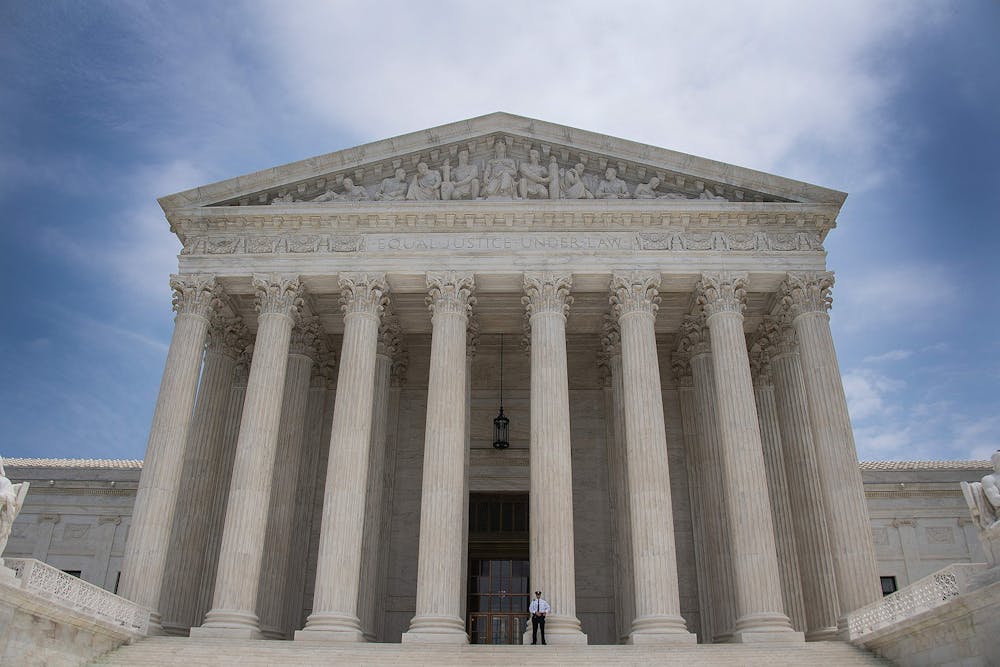By David G. Savage
Los Angeles Times
WASHINGTON – Gun-rights advocates want the Supreme Court to uphold a constitutional right to carry a firearm away from home, but the justices did not sound ready on Monday to issue such a broad ruling in a New York City case.
Instead, they hinted they will dismiss the case – New York State Rifle & Pistol Association vs. City of New York – as moot because the city has repealed a police regulation that had barred licensed gun owners from carrying their unloaded weapons to a shooting range outside the city.
The tenor of Monday's argument suggested the outcome will mark another disappointment for champions of the Second Amendment and a relief for gun-control advocates.
In 2008 and 2010, the justices struck down city ordinances in Washington, D.C., and Chicago that prohibited the private possession of handguns at home. But since then, the justices have said nothing about the scope of the Second Amendment. They have also turned down challenges to local and state laws that restricted the sale of semiautomatic rifles.
This year, gun-rights advocates were optimistic about defeating local ordinances now that Justice Brett M. Kavanaugh has replaced Justice Anthony M. Kennedy, who had been reluctant to strike down most restrictions on firearms.
Fearing such a result, New York city officials and state lawmakers reacted quickly once the high court agreed early this year to hear the challenge to the so-called transport regulation. In July, the New York Legislature passed a measure to say gun owners may transport a firearm to other locations where they are legally authorized.
The gun owners who sued now have been given "everything they asked for," New York City's attorney Richard Dearing told the court.
The liberal justices – three of whom are natives of New York City – agreed the case should be dismissed. "The state says: City, thou shall not enforce the regulations. So, what's left of this case?" Justice Ruth Bader Ginsburg asked former Solicitor General Paul Clement, the attorney for the gun owners.
He said the gun owners who sued are "entitled to a declaration that the transport ban is and always was unconstitutional."
Justice Sonia Sotomayor scoffed at that idea. "The other side has thrown in the towel," she said. "You're asking us to opine on a law that is no longer on the books."
Chief Justice John G. Roberts Jr. also questioned what was left of the dispute that launched the case. The New York city attorney assured him the city "is closing the book on that old rule" and will not enforce it in any way. Kavanaugh listened but asked no questions during the argument.
The New York City case has drawn wide attention because the high court has so far refused to clarify the scope of the Second Amendment and the "right to keep and bear arms."
Gun-rights advocates were urging the court to rule that the right to "bear arms" includes the right to carry a weapon when leaving home. They say that in California and elsewhere, gun owners are restricted in carrying licensed firearms when they travel.
Clement said the Second Amendment is not a "home-bound right." In early American history, it was understood that gun owners would carry their weapon with them, including when serving in a militia. He urged the court to rule that gun rights "are not strictly limited to the premises" of a home. He acknowledged, however, that the "city has struggled mightily to make this case go away."
Three of the court's conservatives – Justice Clarence Thomas, Samuel A. Alito Jr. and Neil M. Gorsuch – favor stronger rights for gun owners. Both Alito and Gorsuch argued for the court to rule in the New York case.
"Why is this case moot? Because they didn't get all that they wanted. They wanted a declaration that the old law was unconstitutional, period," Alito told the city's attorney.
The outcome will likely depend on Roberts and Kavanaugh. The chief justice in the past has said the court should be reluctant to issue broad rulings if it can avoid doing so. As an appeals court judge, Kavanaugh said the Second Amendment should be read to protect a gun owner's right to have a semiautomatic weapon. But he has also been quite cautious since joining the court a year ago.
New York City had two types of gun licenses, the city attorney explained. The one at issue in the case was a "premises license," which authorized gun owners to have a weapon at home – and to carry it to a shooting range in the city, but not outside. A second "carry" license would allow for carrying a concealed gun.
This case "is about the scope of the premises license," he said, since the plaintiffs who sued did not seek a carry permit. But New York City, like Los Angeles and San Francisco, requires applicants to show they have a special need for carrying a firearm in public.
Lawyers for the Trump administration joined in support of the gun owners who challenged the New York City restrictions on transporting weapons. They urged the court to issue a ruling to make clear that any such limits on carrying legal weapons were unconstitutional.
"In this case, the court should confirm that the Second Amendment protects the right of a law-abiding, responsible citizen to take his firearm outside his home, and to transport it to other places, such as a second home or a firing range," Solicitor General Noel Francisco said in his brief to the court. "Read naturally, the right to 'bear' firearms includes the right to transport firearms outside the home."




